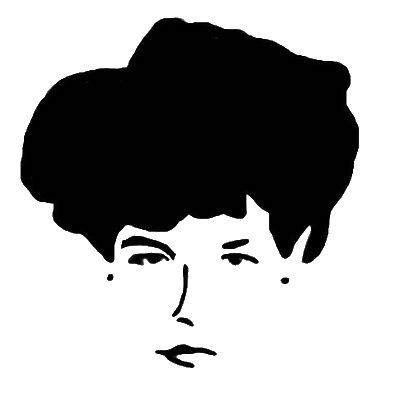Since you burned, a lot has happened. I fell in fake love with a boy who was secretly a fetus, and a doctor told me that blood vessels in my eyes are growing toward my pupils and if they reach the pupils my vision will permanently blur and they are dangerously close, he said, to reaching them.
I almost didn’t go to work this morning. I will never read a book again. The air felt made of cold hard water. But I brushed my teeth and put on shoes and as I was bending to lace them, I thought of you in the VA hospital, being told your life would last a few more weeks. I will never watch football again.
The boy I fakely loved looked like he was wearing mascara when he wasn’t. We had a few things in common: a zeal for smudgy music, an interest in Eastern spiritualisms, and a history with needles. My needles were a lot farther back in history than his. He lived in the lee of a Beirut hospital whose massive walls were streaked with bomb dust, except it was Brooklyn. The restaurant on his corner was called Chicken Shack II.
—
The cause of my impending blindness: lack of oxygen from wearing my contacts too much. From sleeping in them. When deprived of oxygen, the eye starts to build blood vessels that grow like vines toward the center. Since learning this—yesterday—I have been wearing my glasses. “It might be too late for laser surgery,” the doctor said. The vines may have gotten too close. I will never see my sister again. “I’m scared,” I told the doctor. “You should be,” he said.
Some of your doctors at the VA were dicks, too. The nurses were pretty terrible themselves but I had more sympathy for them, aside from the one who dropped your head while turning you and didn’t say sorry.
When your oldest friend came to visit and put his hand on your hair, you yelled, “Schmuck! Schmuck!” until he took it away. You weren’t making sentences by that time, but you still had the old words.Shit, schmuck, goddammit.
A. and I identified you, pre-burning, from across the funeral-parlor lounge to make sure they didn’t give us back the wrong ashes. The face looked like a piece of wax somebody had put makeup on, and I didn’t believe it was you. But A. said, “That’s our dad.”
“Was it him?” I asked in the car. “I think so,” she said.
I thought I had killed you, because you died right after I fed you chocolate ice cream. Your gurgling noises started during a spoonful. “Clear your throat, Dad!” You tried. “Breathe!” You tried. We got the suction machine and asked the nurse to do it. She went slowly, because (she told me afterward) she knew you weren’t choking. The suction machine was useless against a death-rattle. But we didn’t know.
Why did I think I loved the boy? Because he held me tight on the subway. Made me for Valentine’s Day a box of paper ships on a paper sea. Why was the love fake? Because, well, the way I felt after you burned, I could have loved a lamppost.
First the boy screamed at me for refusing to pay for his Chicken Shack II takeout when I knew, didn’t I, that he was currently in a financial shame spiral; then he said, “I don’t feel much sexual chemistry with you, anyway” and coiled his stretchy body into a fetal ball. It was his deepest nature, that ball, a pupa aching for its cocoon. Who can blame him, really. The world is no uterus.
I walk around looking at things and wondering if it’s the last time I will see them. Last tree, last hotdog cart, last boat on a river. Okay, I’m not blind yet. But these vines might be bad. I’ll never see a hospital again. I am going to a real eye doctor next week, praying that the dick at the glass-frames store on East 14th Street was mistaken. Praying that the expensive ophthalmologist will say, “Oh, you’re fine.”
You’d say: “Tell your eyes to breathe. Breathe, goddammit, eyes!”
The day before the ice cream we watched a football game in your room at the VA. I pulled grapes off the stem and laid them on your stomach and you picked them up carefully. The team was wearing black armbands in honor of a player who’d been shot in his non-football life. “Who murdered him?” I asked. “A murderer,” you said.
Even if you were still alive, you couldn’t protect me from a balled-up boy and you couldn’t fix my eyes. I wouldn’t have told you about either of them in the first place. I wouldn’t have risked your unhelpful silence on the other end of a phone, or your “Well, I’ll let you go!” after we’d been talking for only three minutes. I’m telling you now because I can’t tell you. Burned, your blood throbs in the needle-free pit of my elbow and in A.’s good heart. Burned, you’re the river under the boats and the stems on the grapes and the light in every tree. Such a way of putting it might embarrass you, but I think you’d secretly agree.
